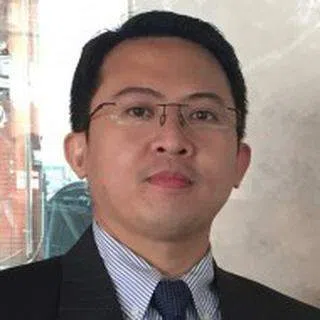China's CPC deepens ties with Philippine political parties
Under Philippine President Rodrigo Duterte, party-to-party (P2P) relations have been forged and deepened between the Communist Party of China (CPC) and various Philippine political parties. Such P2P diplomacy offers China a new diplomatic channel to promote bilateral relations and complement confidence-building measures. It also enables Beijing to hedge at the sub-national level given the plurality of political bases in the Philippines. Philippine researcher Aaron Jed Rabena looks at the engagements thus far and examines how these may affect Philippine domestic politics.
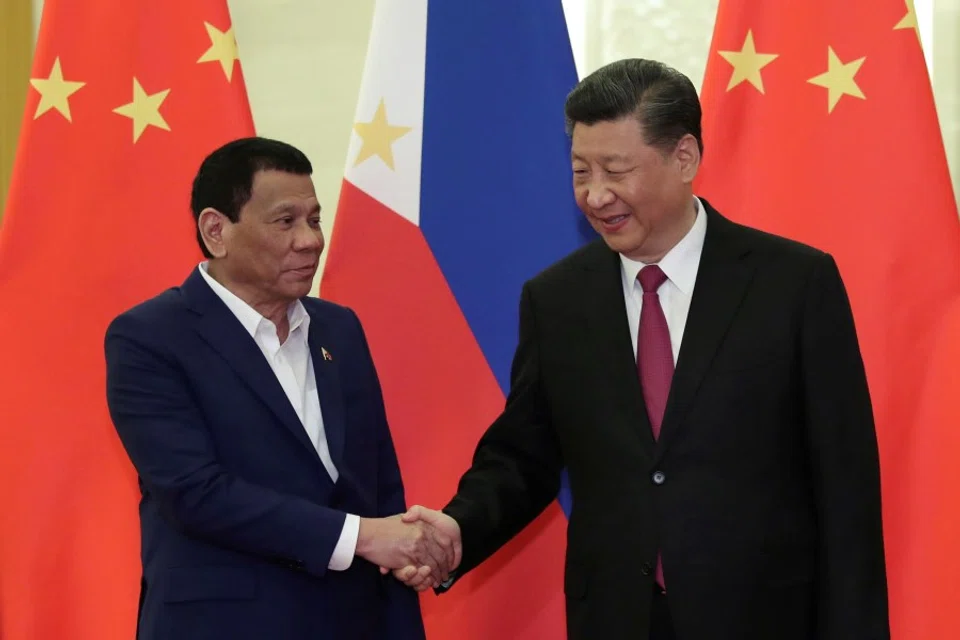
Since Philippine President Rodrigo Duterte took office in 2016, not only have government-to-government ties with China reached an all-time high in the form of "comprehensive strategic cooperation", party-to-party (P2P) or inter-party ties have also become more active between the Communist Party of China (CPC) and various Philippine political parties particularly President Duterte's political party where he concurrently serves as chairman, the Partido Demokratiko Pilipino - Lakas ng Bayan (PDP-Laban). This is in sharp contrast to the previous Benigno Aquino administration which saw no formal P2P exchanges and limited high-level engagements with China given the adversarial state of bilateral ties back then, due to tensions in the South China Sea/West Philippine Sea (SCS/WPS).
China's P2P engagements are nothing new and have been used to marshal external support during the revolutionary days of the CPC, help consolidate China's independence after the founding of the New China or the People's Republic of China in 1949, and construct an international environment conducive to economic modernisation since Deng Xiaoping's 1978 reform and opening-up. It is important to underscore that in the Chinese system, the party (CPC) not only commands the gun, as Mao Zedong put it, but also the state. This explains why state officials are party members first and why party congresses precede state functions such as the people's congresses.
China's P2P diplomacy may thus be likened to "parliamentary diplomacy".
In fact, the Small Leading Group for Foreign Affairs (中央外事工作领导小组), which was upgraded to the Committee for Foreign Affairs (中央外事工作委员会) in 2018, is under the auspices of the party and arguably has more political power than state institutions such as the Ministry of Foreign Affairs (MOFA). This is because the head of the Committee for Foreign Affairs is led by Politburo member Yang Jiechi and this same committee coordinates and supervises the overseas work of all party, government and military agencies.
Moreover, there are party committees in the MOFA, state-owned enterprises (SOEs), and even private corporations. Since party authority reigns at all times supreme over the state and the military, let alone that the 14-point basic policy of the "Xi Jinping Thought" states "ensuring Party leadership over all work", China's P2P diplomacy may thus be likened to "parliamentary diplomacy".
The party organ in charge of China's P2P diplomacy or Party external work is the International Department of the CPC Central Committee or also known as "ID-CPC". Among the functional roles of ID-CPC is to collect information on political developments overseas and provide policy recommendations to the Central Committee and the Politburo Standing Committee.
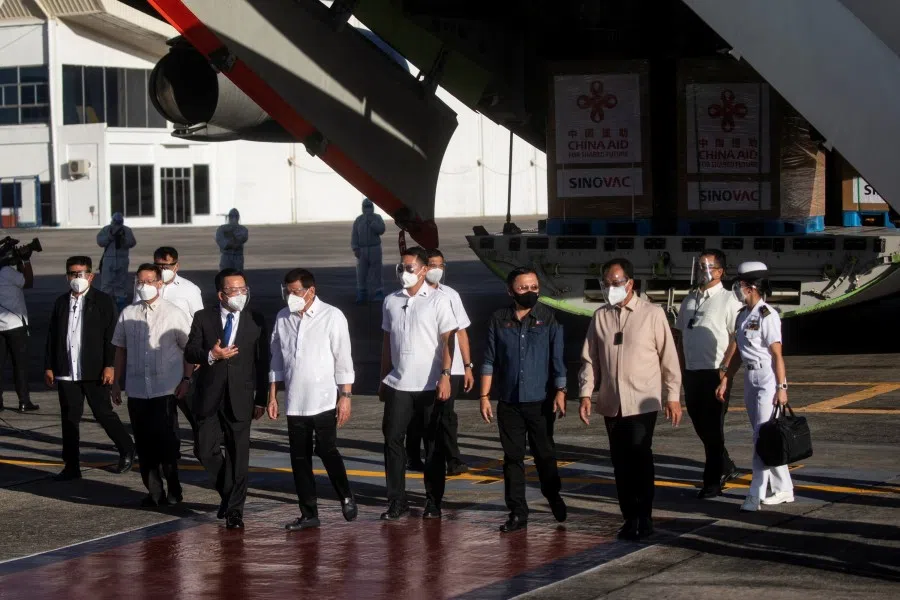
Strategic imperatives of China's party-to-party diplomacy
P2P diplomacy gives China a new diplomatic layer - apart from media diplomacy, think tank diplomacy and military diplomacy - to promote overall bilateral relations and complement confidence-building measures being done through traditional channels. In addition to ID-CPC and Central Committee members, China's P2P delegations include high-level members of provincial party committees and governments. ID-CPC's activities, on the other hand, include "conference diplomacy", party dialogues, training/visiting programmes, and sponsorships of overseas party schools.
Since President Xi Jinping took office in 2012, the CPC has doubled down on reaching out to other political parties. In 2017, Xi announced that 15,000 party members from around the world ought to be brought to China within five years. In this regard, ID-CPC has built a global network with more than 600 political parties in over 160 countries, and receives and sends off more than 300 delegations each year.
The top priority in the CPC's engagements are countries that are ideologically aligned with China or where China has strategic foreign policy interests. Examples include the ruling parties of socialist countries (e.g., Cuban Communist Party, North Korean Workers' Party, Communist Party of Vietnam, Lao People's Revolutionary Party) and those in Cambodia and Sub-Saharan Africa. The CPC has also engaged several political parties in Organization for Economic Cooperation and Development (OECD) member-states and Latin America.
However, a study finds that the CPC is most active in Asia. In Asia, the CPC has established networks with the New Komeito Party and Democratic Party of Japan, and political parties in South Korea, Malaysia, Mongolia, and South Asia. There is even a China-Japan Ruling Party Exchange Mechanism which is similar to the China-US High-Level Political Party Leaders Dialogue. Concomitantly, the CPC exercises multilateral party diplomacy by actively supporting and working with organisations like the International Conference of Asian Political Parties (ICAPP).
CPC's P2P engagement under the Duterte Administration is unprecedented for two reasons: the establishment of formal ties through the signing of a Memorandum of Understanding (MOU) with a Philippine political party and the incorporation of P2P diplomacy within the framework of the BRI.
In view of these, the CPC is able to cultivate relationships and gain indirect access to "political elites", "high-level decisionmakers", and "power-brokers of future political leaders". As the ID-CPC describes it: "Many state leaders, before they assume office, had already been China's friends. After they assume office, they have made active efforts in advancing friendship with China". Also, it is through P2P engagements that the CPC can familiarise itself with the role of the opposition in the domestic political life of different countries.
Similarly, P2P diplomacy allows China to articulate its political narratives and maximise agenda-setting powers. Specifically, China is able to "show its side of the story" in terms of its political model (developmental path and experience), ideological orientation, governance theories (eg., Xi Jinping Thought), policy positions (i.e., on Taiwan, Tibet and Xinjiang, South China Sea, global governance reform, UN-centered international system), and policy priorities (Five-Year Plans, Belt and Road Initiative (BRI), Chinese Dream, Peaceful Rise, Harmonious World).
Institutionalisation of China's party-to-party diplomacy in the Philippines
China's P2P diplomacy with the Philippines precedes President Duterte. Since the early 2000s, the CPC has already engaged, albeit informally, with the Liberal Party (LP), Lakas-Christian Muslim Democrats (Lakas-CMD), Nationalist People's Coalition (NPC), Laban ng Demokratikong Pilipino (LDP), and the Partido ng Masang Pilipino (PMP).
However, the CPC's P2P engagement under the Duterte Administration is unprecedented for two reasons: the establishment of formal ties through the signing of a Memorandum of Understanding (MOU) with a Philippine political party and the incorporation of P2P diplomacy within the framework of the BRI.
The former can be observed in the CPC and PDP-Laban - the current ruling Party in the Philippines - inking an MOU on Exchanges and Cooperation in February 2017 to enhance high-level interaction (i.e., periodic exchange visits, cadre training cooperation, study groups, and youth and local leaders' communications). Prior to this, in 2016, the PDP-Laban had entered into an agreement with the CPC for PDP-Laban party members to receive "policy training" at the provincial party school in Fujian.
Since President Duterte came to power, there has already been more than ten occasions of interaction between the CPC and Philippine political parties. These involve PDP-Laban's two delegations for training as party cadres and immersion programme on the CPC's internal systems, importance of party schools, party discipline, and anti-corruption efforts.
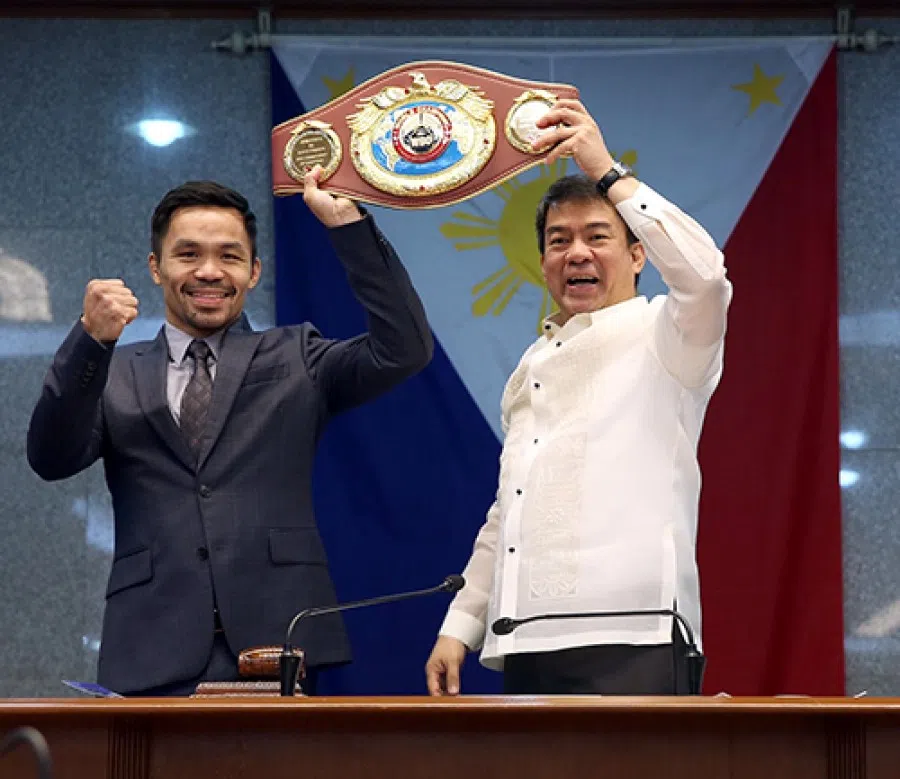
The other two delegations were led by then-Senate president and former PDP-Laban President, Senator Aquilino "Koko" Pimentel III, for the first BRICS (Brazil, Russia, India, China, South Africa) Political Parties Think-tanks and Civil Society Organizations Forum in Fuzhou (June 2017) and the CPC in Dialogue with World Political Parties in Beijing (December 2017) where an endorsement of the BRI and "Beijing Initiative" or pledge of support for China's "Community of Shared Future for Mankind" and "Xi Jinping Thought on Socialism with Chinese Characteristics for a New Era" was made.
During these trips, Senator Pimentel also led a delegation to Xiamen to discuss party-building cooperation with senior CPC officials and visited the CPC Central Party School in Beijing where party officials are trained on governance and public administration. Notably, the delegation to Beijing included world boxing icon Senator Manny Pacquiao (now PDP-Laban President) who is known to be considering a run for higher office.
Senator Pimentel remarked that it was important to "[u]nderstand the path, concept and model of China's development" and study the CPC's experience such as poverty alleviation efforts. This messaging implies the need to draw lessons from China's non-liberal democratic governance approaches.
On the Chinese side, several high-profile visits to the Philippines have been made by senior CPC officials. For instance, in January 2018, upon the invitation of PDP-Laban, Meng Xiangfeng, executive deputy secretary of the Work Committee for the Departments Directly Under the CPC Central Committee and deputy director of the General Office of the CPC Central Committee, came to Manila and had a dialogue with PDP-Laban on China's 19th Party Congress and gave out hundreds of copies of the first volume of President Xi's book The Governance of China. Meng also had the chance to have an official meeting with President Duterte.
Two months later, during the 36th anniversary celebration of PDP-Laban, ID-CPC Vice-Minister Guo Yezhou was invited as guest speaker where 600 copies of the second volume of President Xi's book were donated to PDP-Laban. Speaking of the event, Senator Pimentel remarked that it was important to "[u]nderstand the path, concept and model of China's development" and study the CPC's experience such as poverty alleviation efforts. This messaging implies the need to draw lessons from China's non-liberal democratic governance approaches.
In March 2019, a Chinese delegation led by ID-CPC Minister Song Tao met with President Duterte in Davao City and discussed trade, the Duterte administration's "Build Build Build" programme, and the SCS wherein President Duterte disowned the legal action of certain Filipinos against President Xi at the International Criminal Court (ICC).
This was followed through in September 2019 by a visit of a Chinese delegation, led by Chen Min'er (Chongqing party secretary and Politburo member) and a known protégé of President Xi, to meet with representatives of PDP-Laban, Nacionalista Party (NP), National Unity Party (NUP), NPC, and Lakas-CMD in Manila. These allied political parties of PDP-Laban constitute the "supermajority" in the Philippine House of Representatives. Curiously, a major Philippine political party, the LP, which was the party of former President Benigno Aquino - who pursued a critical China policy - was absent from the meeting.
Subsequently, Chen met with President Duterte and went to Davao City to meet with Davao City Mayor and the president's daughter, Sara Duterte. In Davao, exploratory talks on two-way investment opportunities, sister city agreement, big data, smart technology and logistics cooperation were made, which in turn, is demonstrative of how the CPC links Chinese local actors (provinces/municipalities) and business interests overseas.
Then, in December 2019, PDP-Laban took part in a briefing on the Modernization of China's System and Capacity for Governance Forum in Beijing. However, because of Covid-19, P2P engagements were forced to go virtual.
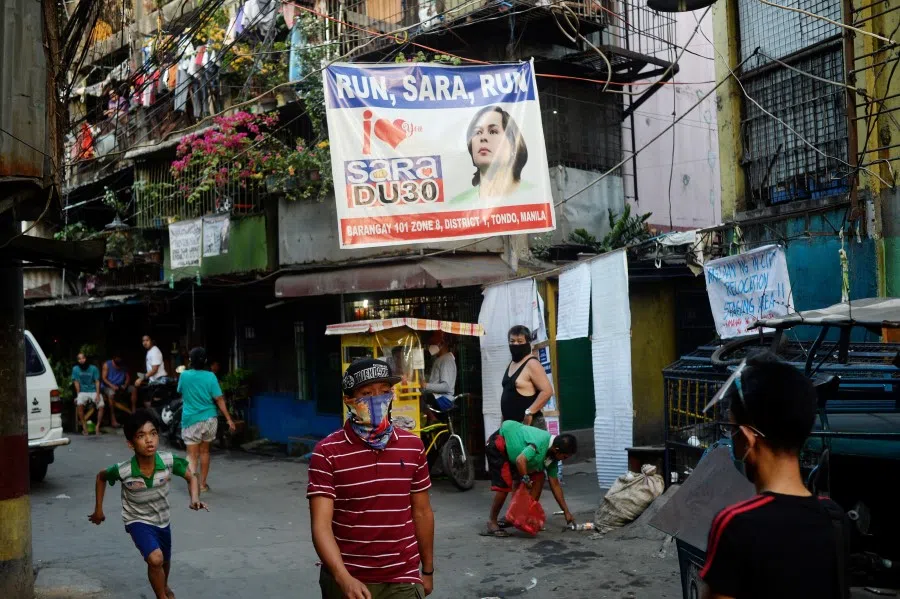
In June 2020, the ID-CPC, just as it had with Indonesia and Thailand in September 2020, held the first China-Philippines Political Parties Belt and Road Consultation Mechanism. And the Philippine political parties in attendance, apart from PDP-Laban, were NP, NPC, and the Partylist Coalition Foundation Inc. The conference emphasised continued economic cooperation, BRI, maintenance of regional stability, adherence to the one-China policy, "community of shared future for mankind", exchange of governance/development experience, and the role of political parties in promoting bilateral relations.
The creation of this new mechanism is arguably the most political aspect yet of the BRI as the BRI's five pillars of cooperation only consist of policy coordination, economic (trade and investment), infrastructure, and financial and people-to-people connectivity.
The PDP-Laban had additionally participated in an online International Seminar on Poverty Eradication and Responsibility of Political Parties (October 2020) and CPC Dialogue in Political Parties of Southeast Asian Countries (November 2020). It was in the latter that Minister Song Tao gave updates on China's "dual circulation" economic strategy and how the international community stands to benefit from it.
...unlike the United States which often talks of liberal democratic norms (eg., political/civil rights and democratic freedoms), China advances economic interests and presents alternative political values and preferences.
Interestingly, in September 2020, the first in-person meeting between ID-CPC and PDP-Laban represented by Minister Song and Senator Pimentel resumed and was held in Xiamen. The discussions centered on Covid-19 response, economic cooperation, management of maritime disputes, multilateralism, ASEAN-China cooperation, Community of Shared Future for Mankind, BRI, and opposition to power politics. It was at this meeting that Senator Pimentel was given the third volume of President Xi's book. Noticeably, the recurring patterns on these occasions is that, unlike the United States which often talks of liberal democratic norms (e.g., political/civil rights and democratic freedoms), China advances economic interests and presents alternative political values and preferences.
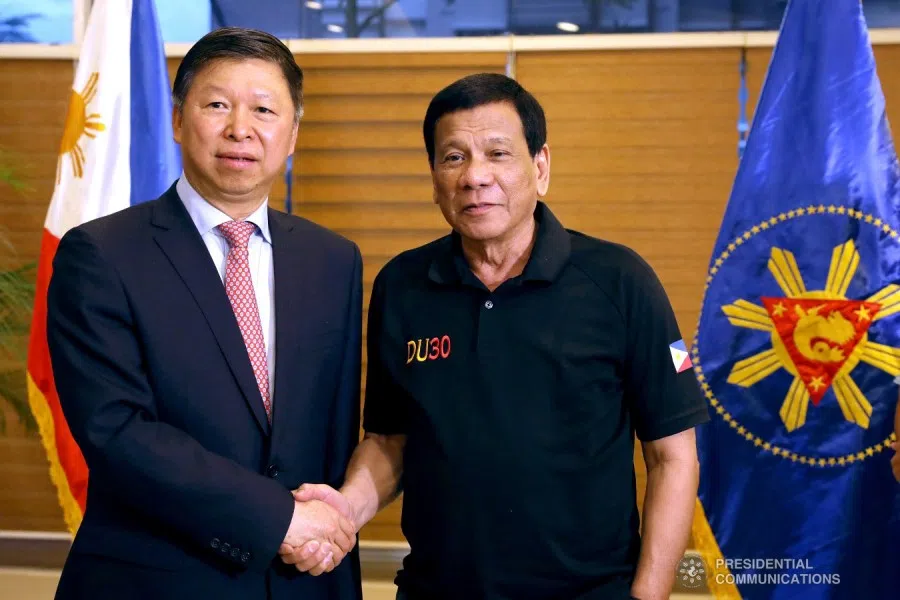
With greater interaction with the CPC and exposure to China, Senator Pimentel has recognised China as a world leader in e-commerce, digital banking, cashless society, financial technology, AI, renewable energy, railway technology, internet technology. He has also been supportive of China "breaking the monopoly" of the US dollar and that the SCS/WPS disputes are not the "end all be all" of bilateral ties with China as China's rise in various aspects of national power is already inevitable. For him, China's rise as a "world leader" should be welcomed for he has always believed in "multi-polarity" and "multilateralism" and that China is a "friend" that "lacks the gene" to seek "hegemony". From these instances, the CPC is already PDP-Laban's closest international partner, which were formerly German political parties, and Senator Pimentel had even proposed the creation of a "Philippines-China Parliamentary Friendship Association".
China's P2P diplomacy is consequential as political leaders can significantly shape public discourse, and thus impact policymaking.
Implications of China's party-to-party diplomacy for politics in the Philippines
It is clear that China's discourse and soft power have led to a more favourable view of China amongst Philippine political party members, especially in the case of PDP-Laban. P2P diplomacy gives China an opportunity to further its foreign policy objectives, expand political networks, and acclimatize to local political environments.
The CPC and PDP-Laban P2P ties have also positioned China to link up with political actors who hold key positions in Philippine political institutions, some of whom have close relations with President Duterte. For example, apart from Senator Pimentel who chairs the Senate Foreign Relations Committee and Senator Manny Pacquiao, other prominent members of the PDP-Laban include senators Christopher Lawrence "Bong" Go and Francis Tolentino, House Speaker Lord Allan Velasco, House Deputy Speaker Dong Gonzales Jr., Energy Secretary Alfonso Cusi (PDP-Laban Vice Chairman), Raul Lambino (Cagayan Economic Zone Authority Secretary and PDP-Laban Vice President for International Affairs), and Charito Plaza (Director-General of Philippine Economic Zone Authority). There are also more than 80 PDP-Laban members, the biggest political bloc, in the House of Representatives.
Through China's multiparty engagement with the broader Philippine political sector, China can spot up-and-coming politicians and friendly political forces, and gets to hedge at the sub-national level given the plurality of political bases in the Philippines, thereby strengthening its political influence. This can work in China's favour in the event of political transitions (elections or successions), intra-party factionalism, coalition formations, and democratic backsliding or domestic political turmoil.
Other than PDP-Laban, among the political parties that China has engaged, the NP currently sits four senators and 42 congressmen, the NPC has three senators and 40 congressmen, Lakas-CMD has one senator and 19 congressmen and NUP has 45 congressmen. It is important to note that party memberships extend all the way down to Local Government Units (LGUs) which include provincial governors, provincial board members, as well as city and municipal mayors and councillors.
China's P2P diplomacy is consequential as political leaders can significantly shape public discourse, and thus impact policymaking. And while China is still seen by some in the Philippines as a Cold War communist state, it should be understood that ideology is already moot as the Philippines has also opted to pursue a "strategic partnership" with the Socialist Republic of Vietnam, not to mention the critics who doubt whether China is still "communist" having allegedly long-abandoned Marxism to embrace free market principles.
Going forward, China's P2P diplomacy will be tested as the 2022 Philippine national elections draw near where political turncoatism - or political butterflies who bandwagon with whichever party is likely next to be in power - is common practice. Furthermore, P2P diplomacy, like Track II diplomacy, could be a useful alternative platform for non-official dialogues in situations where government-to-government political relations have bottomed out, as it did during the administration of President Benigno Aquino III.
This article was first published as ISEAS Perspective 2021/53 ""Political Connectivity": A New Dimension of China's Belt and Road Initiative in the Philippines" by Aaron Jed Rabena.
Related: [South China Sea] Should the Philippines avoid playing the lead role amid rising tensions in SCS? | Can China turn the power off in the Philippines? | China's Belt and Road Initiative faces huge challenges in Southeast Asia | Wang Yi's Southeast Asia tour: How China woos Southeast Asia in view of US-China competition | What is President Duterte gaining from China?
